
Using a laser to eliminate unwanted body hair is a common cosmetic technique known as laser hair removal.
Many people elect to undergo laser hair removal in order to obtain a smoother, hair-free appearance because it is generally safe and effective. But, it's crucial to be aware that some prescription drugs and dietary supplements may affect the procedure and perhaps provide a risk of problems.
We will look at the drugs and supplements to stay away from before laser hair removal in this article.
Targeting the hair follicles in the skin with a laser is a non-invasive cosmetic treatment known as laser hair removal. The hair follicles are damaged and unable to produce new hair as a result of the laser's light beam being absorbed by the pigment in the follicles. Laser hair removal can be utilised on practically any area of the body, including the face, legs, arms, underarms, bikini area, and back. It is normally carried out in a doctor's office or medical spa.
Although laser hair removal is a generally risk-free operation, there are some dangers and side effects to be aware of. Changes in the colour and texture of the skin can also occur, along with redness, swelling, and itching at the treatment site. Laser hair removal can occasionally result in infection or scars.
A number of medications should be avoided before to laser hair removal as they may raise the risk of side effects or impair the procedure's effectiveness.
Prescription drugs to steer clear of include:
There are some nutrients that should be avoided prior to laser hair removal in addition to drugs. These supplements may affect how the laser works or raise the possibility of negative side effects. The most typical supplements to stay away from are:
Vitamin A: Vitamin A is a fat-soluble vitamin that supports immune system, skin, and vision health. High vitamin A dosages, however, may increase the skin's sensitivity to light and the chance of skin injury during laser hair removal. Before getting laser hair removal, it is advised that you cease taking vitamin A pills at least two weeks in advance.
Vitamin E: Vitamin E is a fat-soluble vitamin that supports immune system and skin health. High vitamin E dosages, however, can raise the danger of bleeding and bruising after laser hair removal. Before getting laser hair removal, it is advised that you cease taking vitamin E pills at least two weeks in advance.
Omega-3 fatty acids: These necessary fatty acids are crucial for preventing heart disease and lowering inflammation. Omega-3 fatty acid intake in excess can, however, raise the danger of bleeding and bruising during laser hair removal. Before having laser hair removal, it is advised that you cease taking omega-3 fatty acid supplements at least two weeks in advance.
Garlic: Popular for both its culinary and therapeutic uses, garlic is a popular herb. But, using a lot of garlic can make laser hair removal more likely to result in bleeding and bruises. It is advised that you cease consuming supplements containing garlic at least two weeks before having laser hair removal.
Gingko biloba: This herbal supplement is employed for its advantages to the brain and the vascular system. Ginkgo biloba can, however, increase the risk of skin damage after laser hair removal by making the skin more sensitive to light. It is advised that you cease taking supplements containing gingko biloba at least two weeks before having laser hair removal.
Some drugs and dietary supplements should be avoided before to laser hair removal since they may reduce the treatment's efficacy or raise the possibility of adverse effects. Antibiotics and Accutane, for instance, can increase skin's sensitivity to light and risk of skin injury after laser hair removal. Moreover, retin-A can increase the likelihood of skin damage and make the skin more light-sensitive. Blood thinners, herbal supplements, and some vitamins can make laser hair removal more likely to result in bleeding and bruises.
The laser used for laser hair removal works to remove the pigment from the hair follicles. This indicates that the laser also targets the skin's pigment. Skin injury may result if the skin absorbs more laser energy due to increased light sensitivity. The therapy may be more unpleasant and subject to more difficulties if the skin is more prone to bleeding and bruising.
It is crucial to let your doctor know about any medications or dietary supplements you are taking if you intend to undergo laser hair removal. Your doctor can provide you advice on which drugs and supplements you should stay away from prior to laser hair removal.
Before getting laser hair removal, it's vital to follow a few rules as well. These recommendations can aid in ensuring the safety and efficacy of the treatment.
Among the most popular recommendations are:
Avoid sun exposure: Before getting laser hair removal, you should avoid getting too much sun. Sun exposure might increase the risk of skin damage during treatment by causing the skin to become more light-sensitive.
Shave the treatment area: It is advised that you shave the treatment area before having laser hair removal. By doing so, you may make sure the laser is only focused on the hair follicles and not the surface hair.
It is advised that you refrain from applying topical lotions, such as moisturisers or analgesics, before getting laser hair removal. The efficacy of the treatment may be hampered by these creams.
After having laser hair removal, it's vital to follow the post-treatment guidelines provided by your doctor. This could entail staying out of the sun, refraining from particular activities, and applying topical treatments to lessen redness and swelling.
Unwanted hair can be successfully removed with the common cosmetic procedure of laser hair removal. To make sure the treatment is safe and effective, it is crucial to avoid taking specific medications and supplements before starting it.
“Before to laser hair removal, one should avoid taking some vitamins, herbal supplements, blood thinners, antibiotics, Accutane, and Retin-A.”
It is crucial to let your doctor know about any medications or dietary supplements you are taking if you intend to undergo laser hair removal. Your doctor can provide you advice on which drugs and supplements you should stay away from prior to therapy.
Also, it's crucial to adhere to a few rules both before and after getting laser hair removal. These recommendations can aid in ensuring the safety and efficacy of the treatment. Some of the most typical recommendations include limiting sun exposure, shaving the treatment area, refraining from topical treatments, and adhering to post-treatment instructions.
Overall, when performed by a qualified and experienced practitioner, laser hair removal is a secure and efficient cosmetic procedure. You can ensure that your therapy is safe and effective with few risks and adverse effects by avoiding specific drugs and supplements and adhering to pre- and post-treatment guidelines.
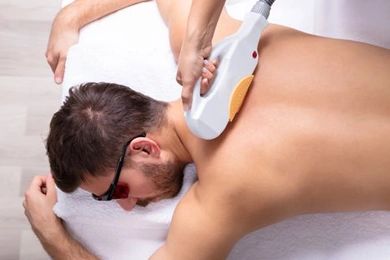 Everything About Male Laser Hair Removal
Everything About Male Laser Hair RemovalIn recent times, men who are looking for a long-term solution to undesirable body hair have grown more and more interested in laser hair removal. ...
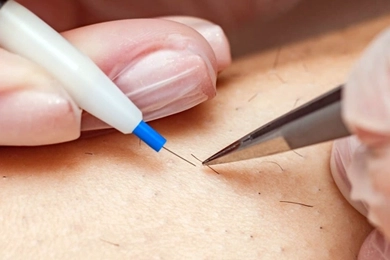 Differences Between Electrolysis and Laser Hair Removal
Differences Between Electrolysis and Laser Hair RemovalWhen considering permanent hair removal solutions, two methods dominate the industry: electrolysis and laser hair removal. ...
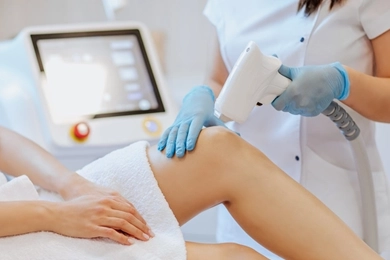 Laser Hair Removal vs. Electrolysis: Which is Right for You?
Laser Hair Removal vs. Electrolysis: Which is Right for You?Two popular techniques—Laser Hair Removal and Electrolysis—have emerged as front-runners in the race for smooth, hair-free skin. ...
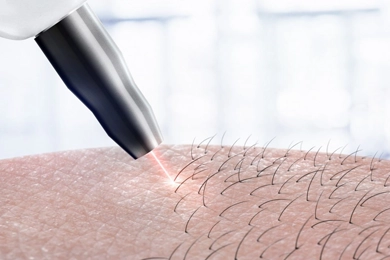 What Factors Affect Laser Hair Removal Prices?
What Factors Affect Laser Hair Removal Prices?The cost of treatment of laser hair removal may increase for clinics located in affluent or cosmopolitan areas due to higher operational expenses such as rent, utilities, and salaries. ...
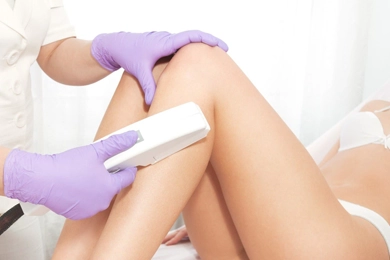 Acne After Laser Hair Removal And Its Treatment
Acne After Laser Hair Removal And Its TreatmentUnwanted hair can be removed from various parts of the body using the popular and efficient laser hair removal procedure. It provides a long-lasting method to stop hair growth, leaving skin that is smooth an ...